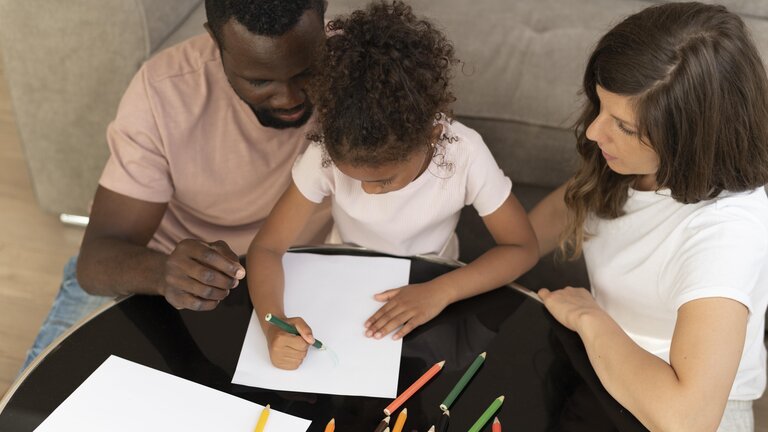Parenting Tips for Parents with Children with Disabilities
Parenting children with disabilities. It's important to be open to a trusted friend and talk about their feelings, visit a therapist and join a support group. This will not only let them know they are not alone, in support groups one gets to learn more about their child’s disabilities and more ways for interventions.
When it comes to parenting children with disabilities, it is always different for each child, especially children with neurodiversity. For starters it is good for the parents to be open with their child and the community about the disability. This will help the people in the community to understand how best to relate to the child with disability. Parents first receive the training themselves then provide the interventions to the children. They can do so by extending the therapy based activities in their homes, reinforcing learning activities that are part of the intervention by specialists.
The perks of being a special needs parent is that you learn to notice, treasure and interpret things that others don’t notice. You learn to appreciate your child in the most profound ways from how they learn to do things no matter how long it takes to how they grow and develop.
Some of the things that every parent needs to know for early childhood intervention include but not limited to the below;

This will help give an overview of the social, cognitive, physical and development of the child. babies learn to focus their vision, reach out, explore, and learn about the things that are around them. Cognitive, or brain development means the learning process of memory, language, thinking, and reasoning. Learning language is more than making sounds (“babble”), or saying “ma-ma” and “da-da.
Child Assessment
It is important to do assessment at an early stage in order to establish interventions measures / therapies needed i.e speech therapy, occupational therapy or physical therapy. Some children may need all while others may require one. Also it is important to note that some kids might be required to be enrolled in special needs schools.
Social Development
Parenting children with disabilities means that you have to use methods of interacting through observing the child in classroom and in the community. This will enable the parent to know how best to intervene and areas in which the child needs intervention. Every child has a strength. It's more important for the parents to focus on what children can do, their abilities, rather than their disability. They can use children's abilities to assist the areas that they have most challenges to them which can be made to be fun and game in order to encourage the child enjoy the sessions!
Language Development
Children who are neurodiverse might inhibit slow or lack of speech. Identifying this help to start speech therapy at an early stage. This will help the child acquire the ability to process speech and communication. This process enables a child to slowly understand basic linguistic patterns and expand their vocabulary gradually before achieving fluency.
Physical Development
To help improve their communication and movement, it is encouraged for the parents help the child to take part in the activities of daily living. These everyday activities include getting dressed and having a bath are great opportunities to encourage your child's development and have fun while at it. Some of these kids might need to use wheelchairs or crutches. It is important to teach the child to be independent as opposed to always pushing their wheelchairs while carrying them around. Also to assist them to be self-dependent it’s important to consider easy physical access issues such as ramps, toilets, lifts and classroom layout and at home.
Health and Nutrition
Some disabilities require the child to be on special diets for instance a child with autism may be required to be on a Gluten-free casein-free [GFCF] diet. Eliminating gluten and casein from the child’s diet may help the change the symptoms and behaviors’ of autism. Studies have shown that inflammation in the gut can lead to inflammation in the brain. This inflammation in the brain can affect behavior, mood, aggression, emotional meltdown, inhibit self-injury and cognition hence why special diets are encouraged in order to heal the gut. There is a link between the gut and the brain which could contribute to this challenging behavior.
How can parents be supported to cope with children with disabilities?
Parents need to know that they too are greatly affected by their child’s disability and need to have mechanisms in place to help them cope and avoid burnouts. It's important to be open to a trusted friend and talk about their feelings, visit a therapist and join a support group. This will not only let them know they are not alone, in support groups one gets to learn more about their child’s disabilities and more ways for interventions.
It is also important for the child’s sibling to be involved in support groups as their siblings’ condition might be affected in various ways from emotionally to being bullied in the society to always being their siblings’ keeper when the parents are not present.
